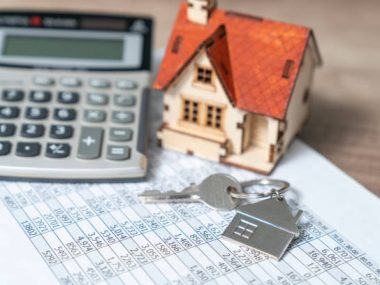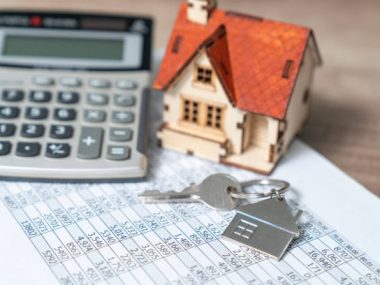Is mortgage forbearance a good idea? Mortgage forbearance has emerged as a financial lifeline for homeowners facing temporary financial hardships, especially during times of economic uncertainty.
However, as with any major financial decision, it is essential to weigh the benefits and drawbacks before opting for mortgage forbearance.
This article aims to explore the question, “Is mortgage forbearance a good idea?” by examining the key considerations involved.
In times of unexpected job loss, medical emergencies, or other financial setbacks, mortgage forbearance can provide temporary relief by allowing homeowners to pause or reduce their mortgage payments for a specified period.
It is designed to prevent foreclosure and offer breathing room to borrowers facing short-term financial difficulties.
While mortgage forbearance may seem like an attractive solution, it is crucial to understand its implications fully.
There are both advantages and potential drawbacks associated with this option, which vary depending on individual circumstances and the terms offered by lenders.
Making an informed decision requires careful evaluation of one’s financial situation, understanding the long-term consequences, and exploring alternative options available.
This article will delve into the pros and cons of mortgage forbearance.
By examining these aspects, you will be better equipped to assess whether mortgage forbearance aligns with your financial goals and circumstances.
Also Read:
Can You Add Renovation Costs to Conventional Mortgage?
Does a Reverse Mortgage Go Through Probate?
How Mortgage Forbearance Works
Mortgage forbearance is a temporary relief option that allows homeowners to pause or reduce their mortgage payments for a predetermined period.
When facing financial hardship, such as job loss, medical emergencies, or other unexpected circumstances, borrowers can request forbearance from their mortgage servicer to avoid defaulting on their loans and potential foreclosure.
The process begins with the homeowner contacting their mortgage servicer and explaining their financial situation.
Typically, documentation or proof of hardship is required to support the request.
Once approved, the lender will grant a forbearance period during which the borrower is not required to make regular mortgage payments.
During forbearance, interest may continue to accrue, but late fees and penalties are usually waived.
The missed payments are not forgiven but rather deferred to a later date.
At the end of the forbearance period, the borrower must work out a repayment plan with the lender to settle the deferred payments.
Repayment options vary depending on the agreement and may include a lump-sum payment, spreading out the deferred amount over several months, or extending the loan term.
It’s crucial for borrowers to understand the terms of their forbearance agreement fully and how it will impact their financial situation in the long run.
While mortgage forbearance provides much-needed relief during challenging times, it is not without potential consequences.
Borrowers must carefully assess their ability to resume regular payments after the forbearance period and explore other alternatives if needed.
Communication with the lender is vital throughout the process to ensure a smooth transition back to regular mortgage payments once the forbearance period concludes.
Is Mortgage Forbearance a Good Idea?
Whether mortgage forbearance is a good idea depends on an individual’s specific financial circumstances and the nature of their financial hardship.
For some homeowners facing temporary setbacks like job loss or medical emergencies, mortgage forbearance can provide crucial relief, preventing default and foreclosure.
By allowing borrowers to pause or reduce mortgage payments for a designated period, it can offer valuable time to recover financially.
The benefits of mortgage forbearance include immediate financial breathing room and the potential to avoid damaging effects on credit scores due to missed payments.
It can be a lifeline for those experiencing short-term difficulties.
However, there are potential drawbacks to consider. Interest may continue to accrue during forbearance, increasing the overall loan cost.
Additionally, the deferred payments must eventually be repaid, and borrowers need to work out a suitable plan with their lender, which could lead to higher monthly payments in the future.
Before opting for mortgage forbearance, homeowners should assess their long-term financial prospects, ensuring they can manage resumed payments after the forbearance period ends.
Exploring alternative options like loan modifications or government assistance programs may also be prudent.
Ultimately, seeking advice from financial professionals and discussing the specifics with the lender is crucial to making an informed decision.
While mortgage forbearance can be a valuable safety net for those facing temporary hardships, careful consideration and planning are essential to ensure it aligns with one’s financial goals and ability to manage future obligations effectively.
Pros and Cons of Mortgage Forbearance
Mortgage forbearance can offer significant benefits for homeowners facing financial hardships, but it also has potential drawbacks to consider.
Here are some pros and cons:
Pros
- Temporary Relief: Forbearance provides immediate relief by allowing homeowners to pause or reduce mortgage payments, helping them navigate through temporary financial difficulties.
- Avoiding Default and Foreclosure: By preventing missed payments and potential foreclosure, forbearance helps borrowers protect their homes and maintain homeownership.
- Protecting Credit Scores: During forbearance, missed payments are typically not reported as delinquent, minimizing the impact on credit scores and improving the chances of future loan approvals.
Cons
- Accrued Interest: Interest may continue to accrue during forbearance, increasing the overall loan cost and potentially extending the loan term.
- Repayment Obligations: Borrowers must repay the deferred payments eventually, which may lead to higher monthly payments or the need to extend the loan term.
- Long-Term Financial Implications: Forbearance may affect future refinancing options, eligibility for certain loan programs, and overall financial stability if not managed carefully.
It’s important for homeowners to assess their long-term financial capability to resume regular payments after the forbearance period ends.
Exploring alternative options and consulting with financial professionals can help make an informed decision about whether mortgage forbearance is the right choice for their specific circumstances.
Also Read:
How to Increase Mortgage Preapproval Amount
Personal Care Assistant Day Shift
Conclusion
Whether mortgage forbearance is a good idea depends on individual circumstances.
For those facing temporary financial hardships, it can provide essential relief, preventing default and foreclosure.
The immediate benefits of avoiding credit damage and maintaining homeownership are valuable.
However, borrowers must carefully consider the potential long-term implications, such as accrued interest and repayment obligations, to ensure they can manage future payments.
Exploring alternative options and seeking professional advice are crucial steps in making an informed decision.
Mortgage forbearance can be a valuable tool, but thorough evaluation and open communication with lenders are essential to ensure it aligns with one’s financial goals effectively.






